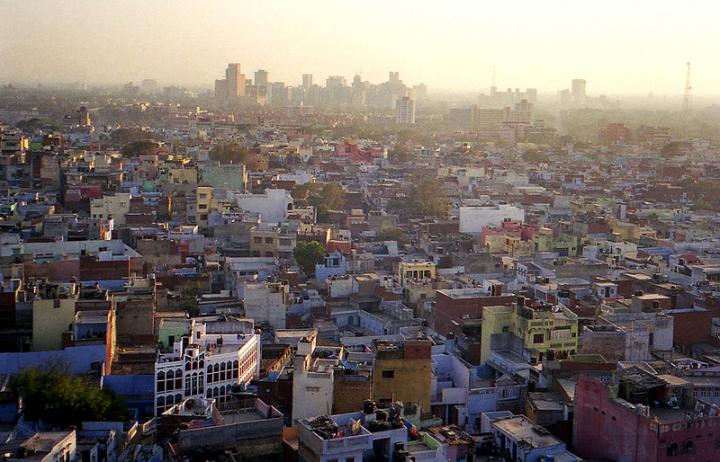
Credit: Ryan, Flickr
Dengue virus is among growing number of mosquito-borne viruses that have adapted to spread in urban environments and are spreading with the increasing rate of urbanization. Now, researchers reporting in PLOS Neglected Tropical Diseases February 11th have identified tap water access in densely populated neighborhoods as a strong predictor of dengue risk in the city of Delhi.
It is estimated that 3.5 billion people are at risk of dengue virus, the most widespread arbovirus. While previous attempts at controlling dengue virus with insecticides at egg-laying sites have been successful in the past, new strategies are needed to target hotspots of dengue virus transmission in urban areas.
In the new work, Olivier Telle of the French National Centre for Scientific Research (CNRS) in at Paris-Sorbonne, Richard Paul from Institut Pasteur, France, and colleagues conducted surveys across the city of Delhi to analyze social and environmental risk factors for dengue virus. They measured dengue antibodies in 2,107 individuals and mosquito larval prevalence in 18 areas within Delhi as well as socio-economic factors across the city.
Across the individuals tested in the city, 7.6% were positive for dengue virus antibodies, indicating a recent or current infection. Colonies with very poor access to tap water, with less than 61% of houses having access, were associated with a higher risk of exposure to the virus (adjusted odds ratio 4.69, 95% CI 2.06-10.67) and were the only type of area to register dengue cases between epidemics. However, despite relatively low mosquito densities, wealthy colonies had a higher risk of recent infection than intermediary colonies (aOR 2.92, 95% CI 1.26-6.72), likely reflecting the import of dengue virus by commuters coming into the high income areas during the day.
“Improved access to tap water could lead to a reduction in dengue, not only for those directly affected but for the general population,” the researchers say. “Targeted intervention through mosquito control in winter in the socially disadvantaged areas could offer a rational strategy for optimizing control efforts.”
###
Peer-reviewed; Observational study; People
In your coverage please use this URL to provide access to the freely available article in PLOS Neglected Tropical Diseases:
http://journals.
Citation: Telle O, Nikolay B, Kumar V, Benkimoun S, Pal R, Nagpal B, et al. (2021) Social and environmental risk factors for dengue in Delhi city: A retrospective study. PLoS Negl Trop Dis 15(2): e0009024.
https:/
Funding: Agence Nationale de la Recherche, France (ANR 10- CEPL-004- AEDESS) to RP ANR: anr.fr/en/ The funders had no role in study design, data collection and analysis, decision to publish, or preparation of the manuscript.
Competing Interests: The authors have declared that no competing interests exist.
Media Contact
PLOS Neglected Tropical Diseases
[email protected]
Related Journal Article
http://dx.




